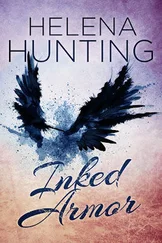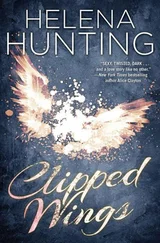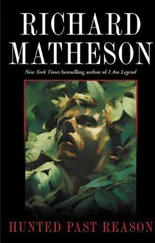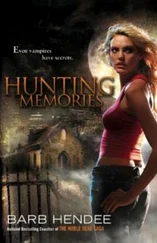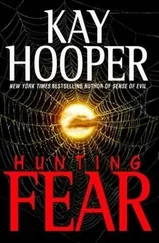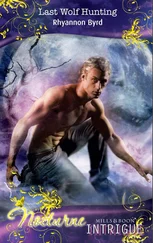Then, one moonless night, just before dawn, the lass slipped out of her house and tossed her pebbles at my window. She welcomed me outside with an embrace that was more solid than I had any right to hope for. When she laughed at my fear for her, I knew she had returned to me.
She removed her bonnet and let me scratch her hair, which was stiff with new growth. We spoke little on that first visit. Sitting on our stoop, she pointed into the sky and had me identify constellations as though she were tutoring me for an exam.
She began to visit me once a fortnight. I often suggested that we sneak off to visit Daniel, but she would not hear of it. “He would just ask me to flee with him. And I cannot.”
“But why can’t you go?” I dared to ask once.
She shook her head. “You are too young to understand, John. I cannot just run away. My family needs my wages. It’s my fault that my uncle is no longer supporting us.”
When I said that wasn’t true, she replied, “John, I’m afraid there are people whose fate it is to remain unhappy. Perhaps wickedness makes some of us undeserving of a better life.”
“But what of America?” I asked. “You told me you would really go there and that no one could stop you. Why not now?”
Hushing me, she told me we might remain friends only if I never spoke of her misfortune. I didn’t understand why she wished this, but on her insistence I swore to it.
*
Violeta, Daniel, and I continued to live our lives largely independent of one another throughout that autumn of 1801. The lad was hardly ever at home, and I grew tired of trying to coax him from the taverns. Even on Saturdays he would often get drunk rather than come with me to Violeta’s stall. He abandoned our art lessons as well, though I still loved my studies with the Olive Tree Sisters every Friday afternoon.
This wretched time reached its zenith shortly after the return of Daniel’s adoptive father, in February of 1802, a bitterly cold and rainy month. I was now almost eleven years of age, fearful of Daniel’s wild mood swings, and disenchanted with bird calls and most everything else.
As for Violeta’s occasional nighttime visits, they served only to agitate me, for she refused to discuss her plight.
Daniel’s father had returned to Porto because his relations in Newfoundland with a woman of French and Ottawa Indian blood had borne one too many fruits. The solution for him had been easy — he simply signed on for the next vessel back to Portugal and left without a farewell. He was of the opinion that unwanted children make all explanations useless.
Daniel already knew this, of course.
Senhor Carlos — for that was the man’s name — insisted that Daniel move back to their house. And despite all of Senhora Beatriz’s pleas and bribes, he refused to sign over the parental rights that had been given him when he and his wife adopted the baby given up by Senhora Beatriz’s daughter. He even threatened to appeal to a judge if she continued to keep the lad from him, insinuating that her Jewish background would hardly weigh in her favor. Furthermore, he was determined to take Daniel away with him the next time he set out to sea.
I remember Senhora Beatriz coming to our house, carrying her small painting of her daughter, on the day Daniel left her home for good. When Mama left me alone with her to make some strong tea, she touched her crooked finger to her beloved daughter’s image and whispered, “We’ve lost him again, Teresa, we’ve lost our Daniel….” She looked up at me as though to beg forgiveness and shuddered. “What a fool I am, John. I thought I’d changed destiny — redeemed our betrayal of that boy. But women are powerless against cruelty once it has claimed a child’s life.”
*
Once, just after Daniel had moved his belongings to his old house, I saw him feign throwing a knife at his father’s back.
“I’d do it, but not even his death would set me free,” he told me.
Rather than attack him at that moment, he took up a wooden plate he’d been carving with the faces of wolves, foxes, and other forest creatures. After working away for a time, he showed it to me. None of the animals had eyes. It was chilling. When I asked for a closer look, he marched outside and hurled it in the river. Lifting his eyebrows like a rogue, he feigned a grin. He wished me to think it was just a game, but I knew better. I said, “You ought to have finished it at least — now they will never be able to see.”
He shook his head. “There’s nothing for me to finish. All that I have known is over now.”
*
Daniel’s father didn’t want to maintain their house during what might be an absence of years, so two months after his arrival it was sold to a blacksmith from Vila do Conde, who was to move in on May the First. With the proceeds from the sale, Senhor Carlos bought Daniel a leather travel case, a knife of English steel, sheepskin gloves, a pair of fur-lined boots, and a woolen cape with a hood.
“Newfoundland freezes over as early as October,” he explained.
This was hardly an enticing prospect to a young man who had never in his short life even worn a thick coat, though Daniel claimed to be overjoyed at finally being able to earn a wage worthy of a man. He scoffed at the very idea of remaining in Porto after his father’s departure. He spoke of his grandmother as a burden and of Violeta as a waste of his time. Anyone unfamiliar with his theatrical gifts might have been convinced that he was grateful for this opportunity to travel.
I believe now that his acting was meant to keep us from discovering that there was nothing left in his well of spirit. So many times in the years since have I wished that I had tossed a rope down to him, because I could have; I was good with words and might very well have convinced him to defy his adoptive father. But I was blind to my own gifts and to many things around me — not unlike those creatures he had carved.
Daniel’s last day in Porto approached quickly. On April the Twenty-Seventh, four days before he was to depart, he and I took a somber walk to the marketplace in New Square to ask Violeta for a final meeting. We found her in a skeletal state, her once-beautiful eyes full of sorrow.
“I must … I must say good-bye soon,” Daniel said. His eyes were so heavy with unspoken emotion that I thought he might faint.
“Say it now, then,” she replied harshly, wiping her nose on her sleeve.
“Come to my house tonight after midnight, please, Violeta,” I said. “We shall have some cake I saved for you from my birthday celebration. Please, we miss you so much.”
She glanced at me witheringly and said, “Go home to your parents. I do not wish to see either of you ever again.”
We were speechless with despair. “Can the world really weigh so much, Violeta?” asked Daniel solemnly. “I ask myself that sometimes. And can we not help each other — you and I? Is that not what we are meant to do?” He smiled sweetly, as though to apologize for the seriousness of his words.
Violeta pressed her hand to her forehead, exhausted, stricken by his pain. “Go, Daniel. You have your life. Do not wait for me.”
“Are you sending me away?” He reached for her, but she turned away.
“Do not touch me,” she ordered. Then her voice softened. “Please, I could not bear it.”
She stared down at the ground. I felt time and the last vestiges of our innocence ending for the three of us. Daniel was pale with shock. He and I waited a moment, hoping she would look up. When she didn’t, we left. The lad’s face was hollow and despondent as we rushed away. Likely he was haunting his own barren life, imagining what would never be. Through my lonely tears, I begged him to talk to me, pleaded that we must not abandon Violeta. On hearing that, he proceeded to provoke a bitter quarrel with me, challenging me to come with him to the suggestively named Cucumber Tavern, a vile public house at the riverside that was a haunt for sailors, bandits, and scoundrels.
Читать дальше

